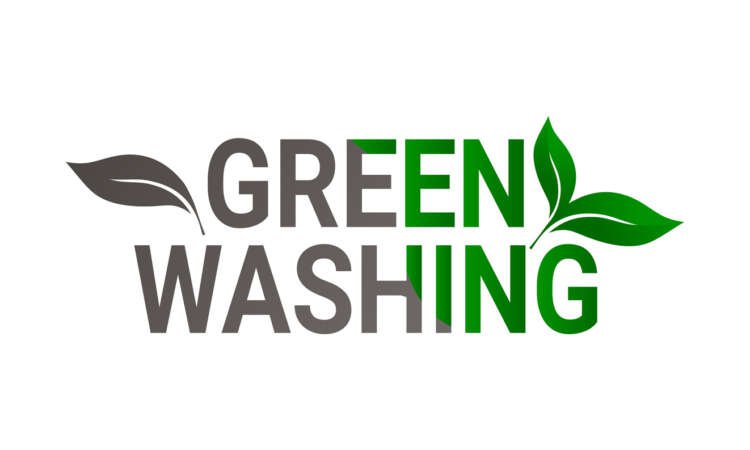Is ‘Greenwashing’ creeping into procurement departments?


By Max Kent,Vice President of Global Procurement at Compleat Software, the purchase to pay software house
‘Greenwashing’ is the not so new phrase coined by environmentalist, Jay Westerveld, in the 1980s when he claimed the hotel industry falsely promoted the reuse of towels, as part of a broader environmental strategy, when, in fact, the act was designed as a cost-saving measure.
The term that isn’t washing away, ‘Greenwashing’ is used to name and shame companies that talk the talk, but don’t walk it – something which affects the giant corporations, just as much as the little guys.
Microsoft was the latest company to find this out when it announced that despite reducing its carbon emissions in fuel, energy, and company vehicles (all of which were largely pandemic-driven anyway), its procurement practices were threatening to de-rail its 2030 carbon neutral pledge.
Microsoft’s Scope 3 emissions (purchased goods and use of sold products) rose by 22.7% year-on-year. Shortly after the news broke, the majority of Microsoft’s partners made promises to become net zero by 2050.
Ensuring sustainable procurement and supply chains is no easy task, but when implemented and managed correctly, placing greater emphasis on how a business operates ethically can lead to better decision-making, significant cost reductions, and a more successful brand.
More importantly, it puts so-called ‘greenwashing’ practices in their place, and replaces them for strategies that actually make a difference.
What is the issue of greenwashing?
Greenwashing has become commonplace in many industries, from fashion to seafood, and has attracted attention from some heavy hitting enforcement organisations, such as the Competition and Markets Authority (CMA) who recently introduced the Green Claims Code – guidelines designed to support industry in ensuring honest marketing campaigns.
As well as the International Consumer Protection Enforcement Network, who in late 2021, in a project led by the CMA and The Netherlands Authority for Consumers and Markets, analysed 500 websites – discovering that around 40% of environmentally friendly claims may mislead customers.
And this is the point – with increasing consumer demand for ‘green’ products and services – the pressure is on all parts of the organisations to deliver this – and this is where procurement departments can fly the true green flag!
What shade of green are you?
Greenwashing is already an issue for the procurement sector, as a recent survey from the Chartered Institute of Procurement and Supply (CIPS) found that 19% of the 300 procurement professionals surveyed didn’t know how sustainable their own products were, whilst almost 50% didn’t believe their organisation was being sufficiently transparent with consumers, clients and regulators about sustainability.
Those organisations falling foul of employing ‘greenwashing’ tactics run the risk of reputational damage, with the ripple effects impacting not just their bottom line, but consumer and employee confidence in what they are doing.
However, the ripples reach further, as it may bring into question the entire supply chain, as well as hinder efforts being made to solve environmental challenges within industry.
Can your entire supply chain really go green?
Procurement teams are tasked with, amongst other things, identifying the right suppliers and should harness this unique position to ensure they have solid information and a thorough understanding of their organisation’s supply chain.
Procurement departments should know their suppliers inside out, have regular conversation with them to understand exactly what they are procuring and where it comes from, and how it was procured.
After all, if you don’t understand what you are buying, as well as from whom you are buying from, you will simply not be able to easily make a claim about the product you sell. If you know then your organisation can truly make irrefutable green claims – because they will be checked!
Overcoming the challenges
The path to implementing sustainable procurement strategies has its fate reliant upon several challenges being met…
Cost: Sustainable products can be more costly than less sustainable ones, which can prove a challenge when faced with today’s volatile market place, especially as it may pose a potential issue of the organisation having to choose between raising prices for the consumer, or taking the hit internally.
The unknown: A move to sustainable products and services is a step into the unknown for many organisations, from the type of governmental regulations and policies which may change, or be introduced, to potential changes in consumer demand.
Internal policies: Organisations should have robust environmental policies inplace, ensure that employees, at all levels, are empowered to implement them – this way being green isn’t seen as another tick box, but it becomes part of the organisation’s culture.
Operationalising: old habits die hard and being sure to understand what, if anything, needs to change, as well as how it may impact the best of the business will be essential.
…however, if organisations get it right, they can build a sustainable supply chain, which they and their suppliers can be proud of.
Procurement departments, prepare to raise the green flag!
It should be mission critical for organisations to ensure they fully understand greenwashing’s role in procurement, so as they can protect their own organisation from the pitfalls associated with ‘greenwashing’ and insead, strategically move to sustainable procurement practices.
Procurement departments should be the flag bearers for stamping out greenwashing from their supply chains, helping to ensure that their respective organisations’ operations, products, and services are not in any way, shape, or form tainted by the curse of greenwash!
Greenwashing is a deceptive practice where companies exaggerate or falsely claim to be environmentally friendly to mislead consumers.
Scope 3 emissions refer to indirect greenhouse gas emissions that occur in a company's value chain, including both upstream and downstream activities.
The Green Claims Code is a set of guidelines introduced by the Competition and Markets Authority to ensure that businesses make truthful environmental claims.
Explore more articles in the Business category











